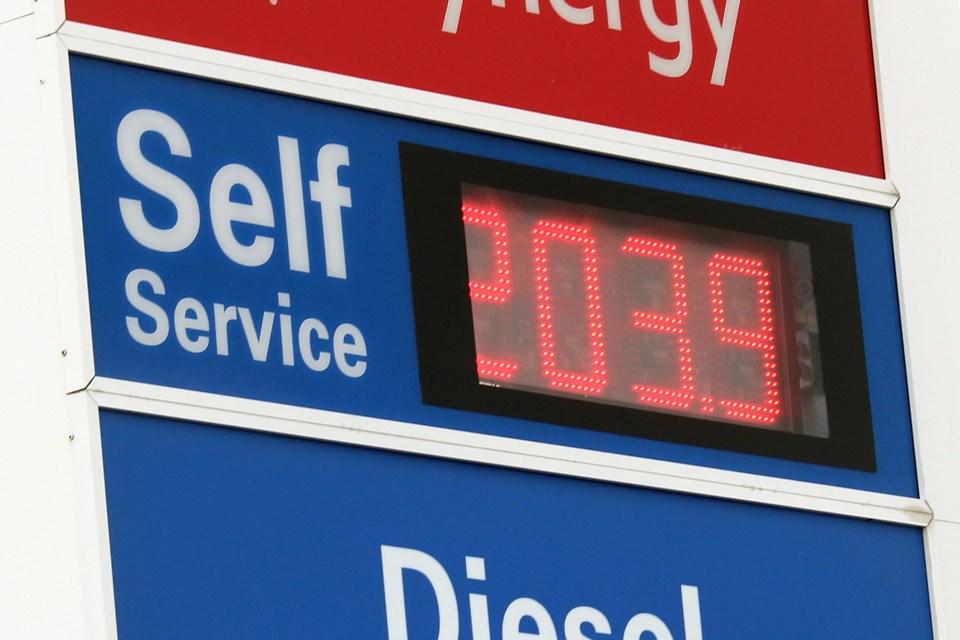THUNDER BAY – You have probably noticed the price of gasoline recently climbed a lot.
Dan McTeague, president of Canadians for Affordable Energy, said the price increase was due to gas stations switching from winter to summer gas.
“The difference is the two blends are meant to provide different outcomes. Winter spec fuel is made to ensure vehicles start and perform under colder conditions,” he said by email.
Winter gas includes butane, he said.
“In the summer, so warmer temperatures, butane is too volatile and given to evaporation under higher temperatures, so it’s swapped out for alkylates, which are the main element used to boost octane.
“It’s what’s used in premium gasoline.”
McTeague said the cost of alkylates has almost doubled in the past few years as the U.S.'s Environmental Protection Agency mandates ever increasing vehicle efficiency.
“To achieve this, auto manufacturers configure engines around (alkylates),” he said.
The switch from winter to summer gas is mandated in both Canada and the U.S.
“What goes up in late March comes down mid-September as winter gas is reintroduced,” McTeague said, adding that it's not a new process.
“This has happened for at least the last 30 years – going back to 1991,” he said.
McTeague said the carbon tax also increased the price of gas by 3.3 cents plus HST, or 3.7 cents per litre in total, at the start of April.
In fact, the carbon tax has slowly increased the price of gas since it was introduced in 2019. It's now adding 17.61 cents per litre plus HST.
“It was imposed on Ontario, Manitoba, Saskatchewan, Alberta, and New Brunswick on April 1, 2019, starting at 4.4 cents per litre,” McTeague said.
In 2030, the carbon tax is scheduled to add 37.43 cents per litre to the price of gasoline, plus HST, to encourage people to move toward alternatives instead of using carbon.
The carbon tax is even higher on diesel fuel, McTeague said. In 2030, the carbon tax on diesel will be 45.45 cents per litre plus HST.
